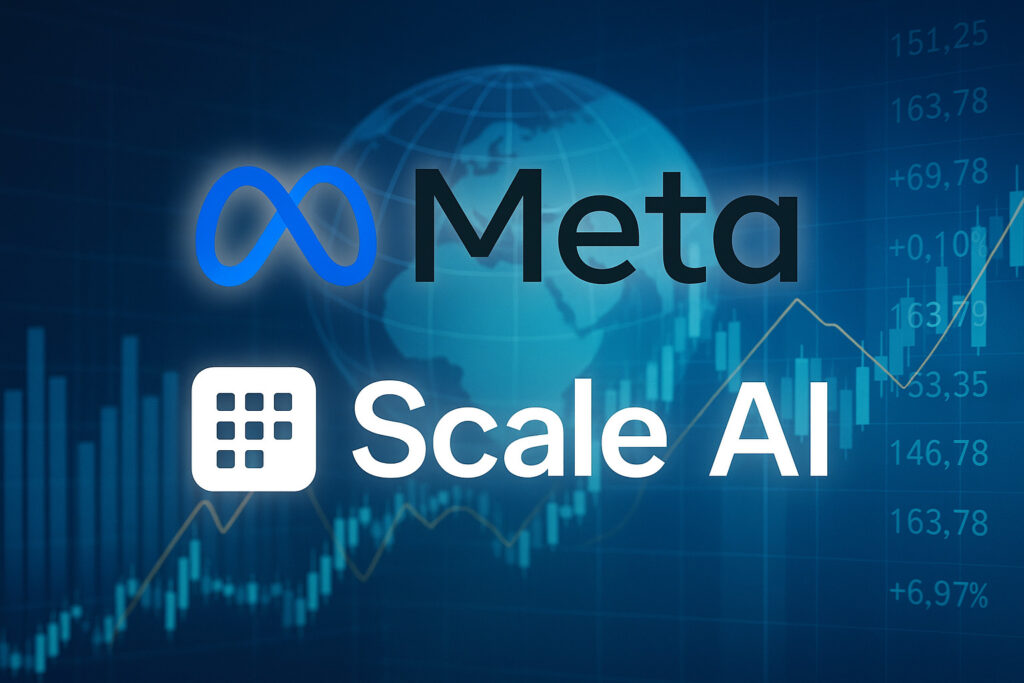🤖 Can Meta Regain Momentum in Generative AI with Scale AI Investment?

💰 Meta Makes a Strategic Move with $14.3B Investment in Scale AI
Meta (formerly Facebook) has made a bold move in the AI space by investing approximately $14.3 billion in Scale AI, a data-labeling startup. The investment gives Meta a 49% stake and values Scale AI at $29 billion.
In a major leadership change, Scale AI’s co-founder and CEO Alexandr Wang is stepping down to join Meta, where he’ll lead a new superintelligence initiative. Jason Droege, Scale’s Chief Strategy Officer, will serve as interim CEO.
Importantly, Scale AI emphasized that it will remain an independent company. Wang will continue to serve on its board of directors, maintaining a close relationship between the two organizations.
📉 Why Meta Needs This Turnaround in AI
Meta has long invested in AI through initiatives like FAIR (Facebook AI Research) and PyTorch. However, its heavy investment in metaverse-related projects in recent years diverted attention and resources from generative AI.
Meanwhile, OpenAI, Google, and Anthropic have taken the lead in the generative AI boom. Meta’s own Llama 4 model, released in 2024, was seen as underperforming compared to models like DeepSeek’s from China.
In addition, Meta lost 4.3% of its top AI talent to competitors in 2024, underscoring the urgency for a strategic shift.
🧠 Is Alexandr Wang’s Move to Meta a Game-Changer?
At 28, Wang turned Scale AI into a leading provider of training data for frontier AI labs. His move to Meta puts him at the center of the company’s effort to build a superintelligence unit.
However, unlike research-first leaders like former OpenAI scientist Ilya Sutskever (now with Safe Superintelligence) or Mistral AI CEO Arthur Mensch, Wang does not have a research background.
Meta is compensating for this by bringing in experienced AI researchers, including Jack Rae from Google DeepMind.
⚠️ Can Scale AI Maintain Its Neutrality?
Scale AI has been a trusted, neutral partner for many AI labs, including OpenAI and Anthropic. Meta’s significant ownership stake has raised concerns about potential bias or favoritism.
Turing CEO Jonathan Siddharth has already reported increased inquiries from clients seeking a more neutral provider, indicating possible market shifts.
Nevertheless, Scale AI states the investment will be used to repay shareholders and support future growth, and that it will not become a Meta subsidiary.
✨ Conclusion: Will This Be Meta’s Comeback Moment?
Despite its foundational contributions to AI through tools like PyTorch, Meta has lagged behind in the current generative AI wave. The investment in Scale AI and Alexandr Wang’s transition mark a major push to reclaim relevance.
With competitors like OpenAI, Google, and Anthropic continuing to accelerate, Meta’s next steps will be critical in determining whether this bet pays off—or falls short again.